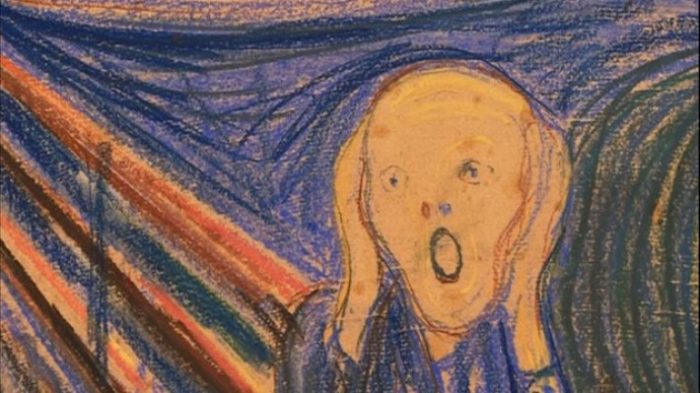Published in the Nikkei Asian Review 20/5/2015
A group of 350 Asian scholars has urged US President Barack Obama and British Prime Minister David Cameron to “act boldly” in addressing their nations’ brutal histories of aggression and colonialism.
Such a statement has yet to be made, but a similarly-worded open letter to Japanese Prime Minister Shinzo Abe signed by a group of mainly US and UK-based academics has created quite a stir in the global media.
On the face of it, this is a strange phenomenon. As the phrase “of academic interest” implies, the cogitations of historians, sociologists and professors of literature rarely have much real world impact. As Henry Kissinger noted, academic disputes are so fierce “precisely because so little is at stake.”
What gave the denizens of the groves of academe their 15 minutes in the global spotlight was the context – the 70th anniversary of the end of the Second World War and the intensifying geopolitical competition in East Asia. The assumption that “history” is a crucial factor in the contemporary version of the Great Game now playing out in the region is naturally gratifying to historians and one that many are eager to promote.
If historical grievances could be resolved, runs the argument, then relations between China and Japan, the two major players, could be put on an even keel. Thus the pressure on Abe to show contrition and the obsessive attention to the actual words he uses in speeches, even to the extent of angels-dancing-on-pins debates about the appropriate translation of terms like “regret” and “remorse.”
The contrast is often made with Germany’s successful rapprochement with its immediate neighbours. A recent editorial in China’s People’s Daily slammed Japan for “its failure to reflect on the past.” As an example of what is required, it pointed to the famous “Willy Brandt moment” – when the German Chancellor, on an official visit to the Warsaw ghetto, fell to his knees in a symbolic gesture of atonement.
In reality the picture is much more complex and dynamic than the historicist explanation suggests. Economic relations between Japan and China have improved substantially since Abe took office in December 2012. Just three months previously, when the middle-of-the-road Democratic Party of Japan was in government, large-scale anti-Japanese riots kicked off in major Chinese cities. Japanese cars were smashed up and Japanese factories torched. The riots were followed by a consumer boycott that did severe damage to the revenues of Japanese companies in China.
The catalyst for this outpouring of Chinese rage was the transfer of the disputed Senkaku Islands (Diaoyu Islands in Chinese) by the Japanese individual who was the titular owner to the Japanese state. The DPJ-led government had misread the situation completely, but under Abe it was soon back to business as usual. The consumer boycott was lifted and a year later the China market share of Japanese companies had recovered to pre-riot levels.
In 2015 the number of mainland Chinese tourists to Japan is up by 80% and Japanese retailers are benefiting from the bakugai (“explosive buying”) phenomenon, with some visitors purchasing dozens of rice-cookers and high-tech toilet seats.
Of more long-term significance is the $10bn deal, signed in January, in which Japanese trading house Itochu took a 10% stake in the Chinese state-owned financial behemoth, Citic, which is well connected at the very highest political levels. On both sides there are powerful business interests that prefer pragmatism to heated rhetoric.
THE FORGOTTEN “KOIZUMI MOMENT”
Nonetheless, some suggest a grand gesture of repentance by Abe would have a positive effect on Sino-Japanese relations. If the past is any guide, that is doubtful. In 2001, then-Prime Minister Junichiro Koizumi enacted a Japanese equivalent of the “Willy Brandt moment” on a visit to the Marco Polo Bridge, site of the Japanese provocation that led to the full-scale invasion of China in 1937.
At the nearby Memorial Hall of the War of Resistance against Japanese Aggression, he expressed heartfelt apologies to the Chinese victims, laid a wreath and bowed and mourned in silence for a minute, before inscribing in the visitor’s book characters that expressed sympathy and pleaded for understanding and forgiveness.
As the English language version of the People’s Daily noted at the time, Koizumi pledged “Japan will face up to its actions, learn from its history and take a peaceful road.” Back then China’s economy was far smaller than Japan’s and the government was adhering to the “peaceful rise” doctrine originated by Deng Xiaoping. Constructive relations with Japan were still considered essential.
Today’s more assertive China is a very different beast and the event has been expunged from the official narrative. When the Asahi Shimbun’s China bureau chief visited the Memorial Hall last year, he found no trace of the “Koizumi moment.”
The scholars have it the wrong way round. Japan and China are at loggerheads today not because they have historical grievances. They have historical grievances because they are at loggerheads today. The strategic rivalry between China on one side and the US and Japan on the other is not going to disappear, no matter how emollient the language Abe uses to mark the 70th anniversary of the end of hostilities in August.
By the time the 100th anniversary comes around, the world will have changed and our perceptions of the past will have changed accordingly. Who knows – then it may be the leaders of Western countries who are on the receiving end of “rebukes” by grand assemblies of Asian historians.
